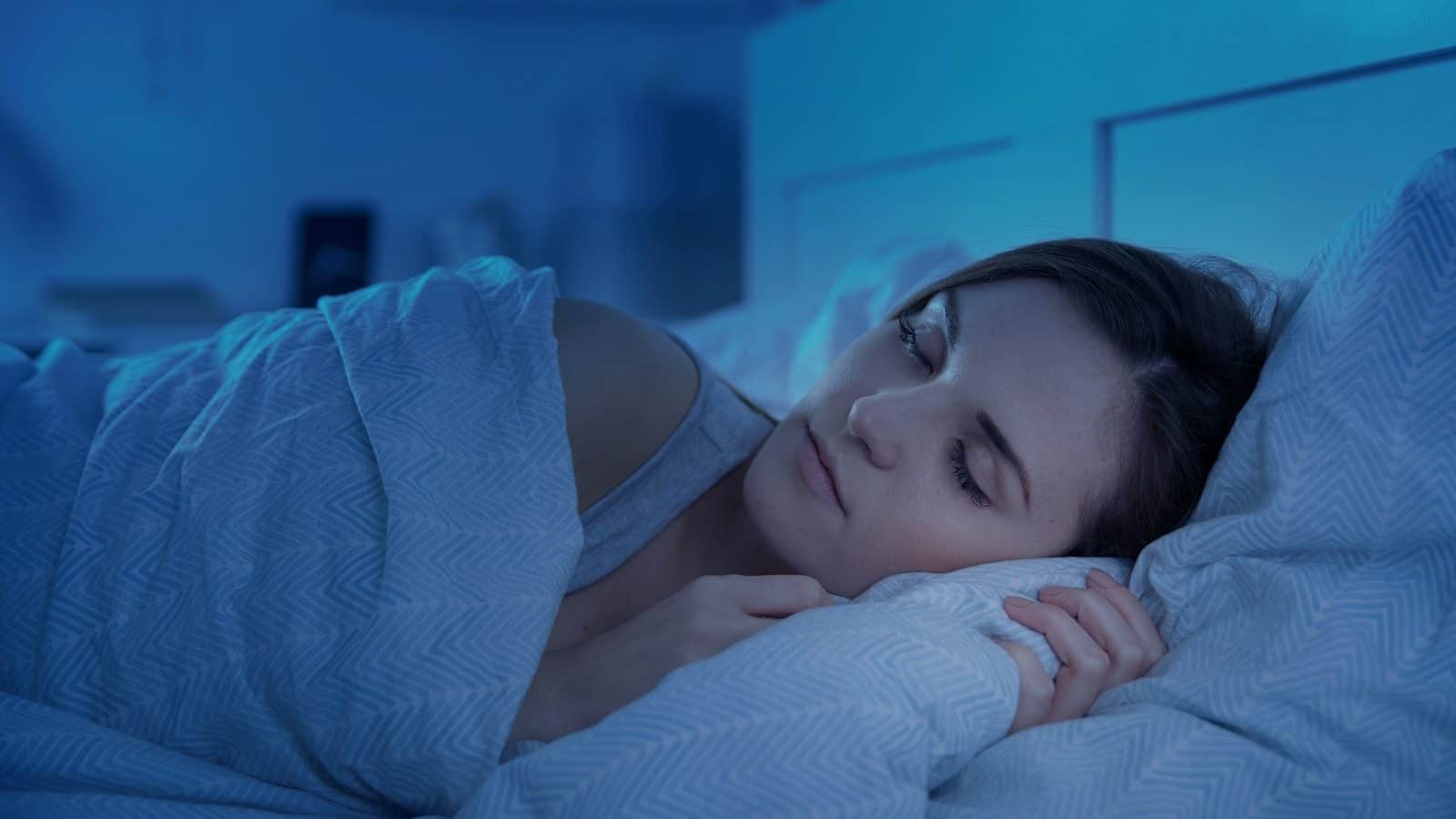Insomnia is the inability to fall or stay asleep when one wishes to do so. As such, it would seem to be a personal problem. And yet, sleep specialists maintain that the modern world continually reproduces the conditions for insomnia.
You can also view insomnia as a sleep disorder that consists of frequent nighttime sleep difficulties that result in reduced functioning during the daytime. People with insomnia experience persistent difficulties sleeping despite allowing themselves adequate time to rest.
Sleeplessness is a very common problem that may be short-lived and temporary, intermittent, or fairly persistent over time. Over one-third of the world’s adult population experiences sleeplessness, at least intermittently.
Statistics of Insomnia
According to research, people are known to sleep twenty percent less compared to how people used to sleep a hundred years ago. Convincing findings suggest that more than thirty percent of the populace experiences sleeplessness.
One in every three persons experiences some type of wakefulness during the course of their lives. More in-depth research suggests that at least half of the American population lose sleep because of stress and anxiety associated with their lifestyles.
Sleep experts advise that between forty and sixty percent of people who are over sixty years of age suffer from sleeplessness. Women are more likely to experience insomnia compared to men. About 35% of victims are known to have a family history of sleeplessness.
More findings advise that ninety percent of individuals suffering from depression are more likely to experience wakefulness. Roughly ten million people in the United States of America use over-the-counter medication and prescription sleep aids.
Individuals who suffer from sleep problems are twenty-seven percent likely to gain weight or become obese. Experts suggest that there is a connection between sleep apnea and weight gain.
According to a poll by the National Sleep Foundation, sixty percent of drivers have been on the wheel while feeling lethargic. And thirty-seven percent of such drivers admitted to falling asleep while driving in the past year.
Types of Insomnia That You Should Be Aware Of
It is a commonplace to say that insomnia is a symptom, not a diagnosis or a disease. In light of this, it is correct to compare it with other nonspecific symptoms, such as headaches or abdominal pain.
For sleeplessness, as for a headache or abdominal pain, the real challenge is to determine a likely cause for the complaint. However, in research and clinical practice, this determination is regularly not done in a rigorous and systematic way.
Therefore, the best way to understand insomnia is by classification. The disorder is normally classified by duration or cause. Apart from the duration, insomnia complaints can be related to a number of broadly defined causes.
In relation to duration or cause, there are six major types of insomnia.
Adjustment Sleep Disorder
Also referred to as acute insomnia, is a condition that results from an acute emotional stress. The stressor can be related to conflict, loss, or a perceived threat. For instance, stress due to a death of a person, and marital, work, and financial problems.
Normally, adjustment sleep disorder lasts for a few days, and less than three weeks. After which, the sleep pattern returns to normal. Signs of acute sleeplessness are prolonged sleep latency, frequent awakenings, or early morning arousal.
There may also be a tendency for excessive sleepiness during the day. In acute situations, there can be a loss of the ability to maintain normal social activities or employment until the acute reaction is over. Intense anxiety or depression may be associated with stress response and sleep disturbance.
Psychophysiological Insomnia
This is the most common type of persistent primary insomnia, which is considered the prototype for primary sleeplessness. It is simply defined as a persistent or chronic disorder of tension, maintained by learned sleep-preventing associations.
Psychophysiological insomnia is usually present for at least one month. There is usually an over concern with the inability to sleep. Negative conditioning of sleep plays a major part in the cause of this form of insomnia.
As said by the International Classification of Sleep Disorders, you must have one or more of the following symptoms to have psychophysiological insomnia:
- You have difficulty relaxing or feeling calm enough to sleep at bedtime
- You experience racing or intrusive thoughts or have a perceived inability to stop thinking
- You sleep better when you are away from home
- You have trouble falling asleep in bed at your desired bedtime or during planned naps
- You have no problem falling asleep during boring or monotonous activities when you aren’t trying to sleep
- You focus too much on sleep and have heightened anxiety about sleep
Paradoxical Insomnia
This is an illness of severe insomnia that occurs without indication of impartial sleep disturbance, and without daytime impairment of the extent that would be suggested by the amount of sleep disturbance reported.
The patient normally complains of little or no sleep on most nights. This condition is thought to affect up to 5% of insomniac patients. Evidence for paradoxical insomnia includes any of the following:
- Reporting a chronic pattern of little or no sleep on most nights
- Presenting an average sleep time well below published age-adjusted normative values
- A marked mismatch between objective findings from PSG or subjective sleep estimates
Idiopathic Insomnia
Also referred to as childhood-onset insomnia, this is a long-standing form of sleeplessness that appears to date from childhood and has an insidious onset. Naturally, there are no factors associated with the onset of the disorder, which is persistent without periods of remission.
The possibility that some cases of idiopathic insomnia might be related to delayed sleep phase should be considered. Children with a delayed sleep phase might be predisposed to developing sleep onset difficulties because they are expected to sleep at times when the circadian clocks are generating strong activating signals.
Insomnia Due To Mental Disorder
Most psychiatric disorders can have associated sleep disturbance. According to research, there are six main categories of mental disorder that are commonly seen in patients presenting with sleep complaints. They include:
- Mood disorders
- Anxiety disorders
- Somatoform disorders
- Schizophrenia disorders
- Disorders normally diagnosed in infancy, childhood, or adolescence
- Persistent personality disorders
Inadequate Sleep Hygiene
This is a primary type of insomnia that is associated with at least one poor sleep hygiene practice that is not better explained by another sleep disorder. Sleep hygiene practices are sleep-related behaviors that have the potential to interfere with sleep.
Though, there is no agreement as to the specific behaviors that fall into this category, the core behaviors are those that are essential to the diagnosis of inadequate sleep hygiene disorder. These behaviors may include:
- Irregular sleep schedule
- Spending excessive time in bed
- Frequent napping
- Routinely engaging in activating activities at bedtime
- Consuming alcohol, nicotine, or caffeine in amounts that can disrupt sleep
The Wrap Up
If you find yourself to be a victim of insomnia, then you should ask yourself the following questions: What is your pre-sleep routine? When is your last meal? When is your last alcoholic drink? Do you engage in any self-soothing activities? When do you stop your work-related activities?
Depending on your answers, you will know for sure that you are an insomniac. You should not attempt to self-medicate, instead, you should consult your physician. However, it is always helpful to know which type of insomnia you are suffering from before you seek medication.





Leave a Reply